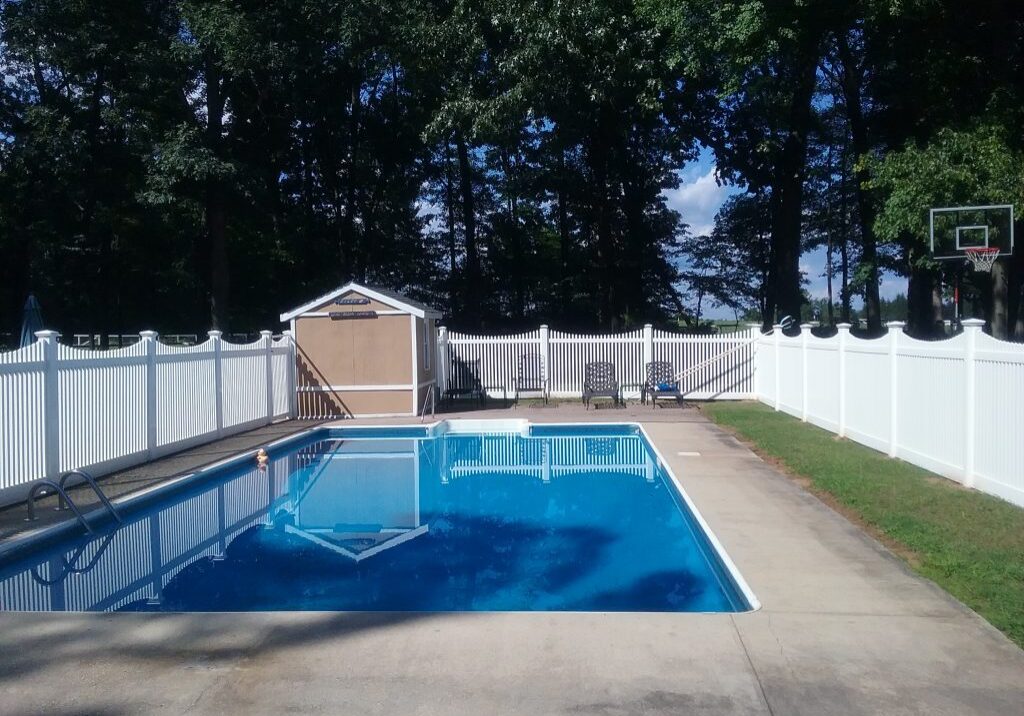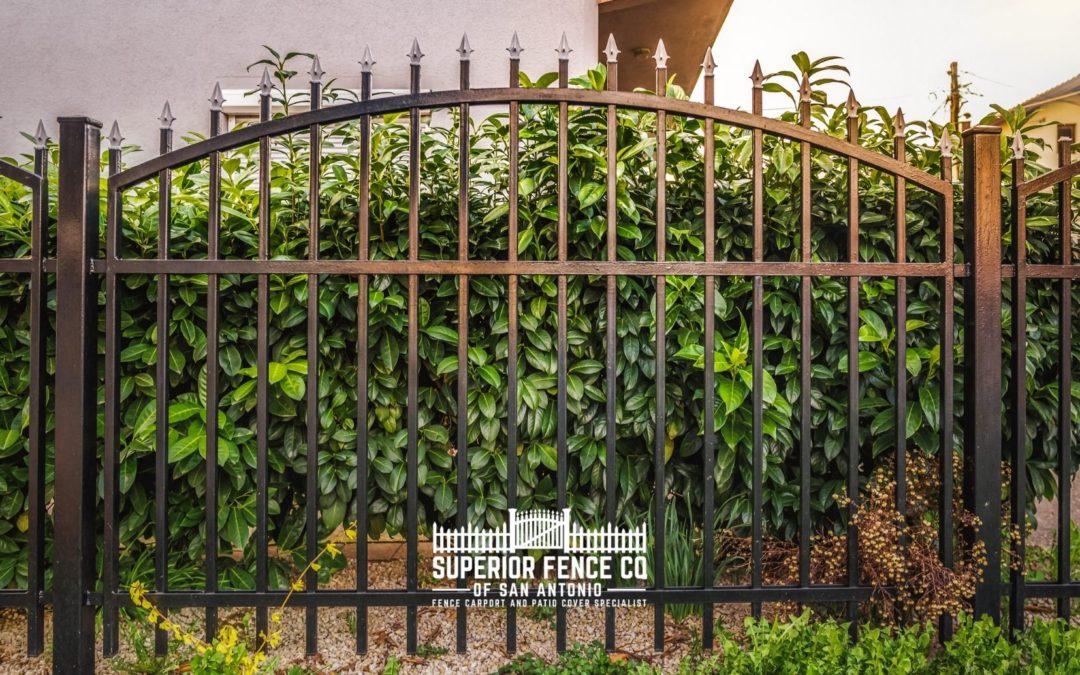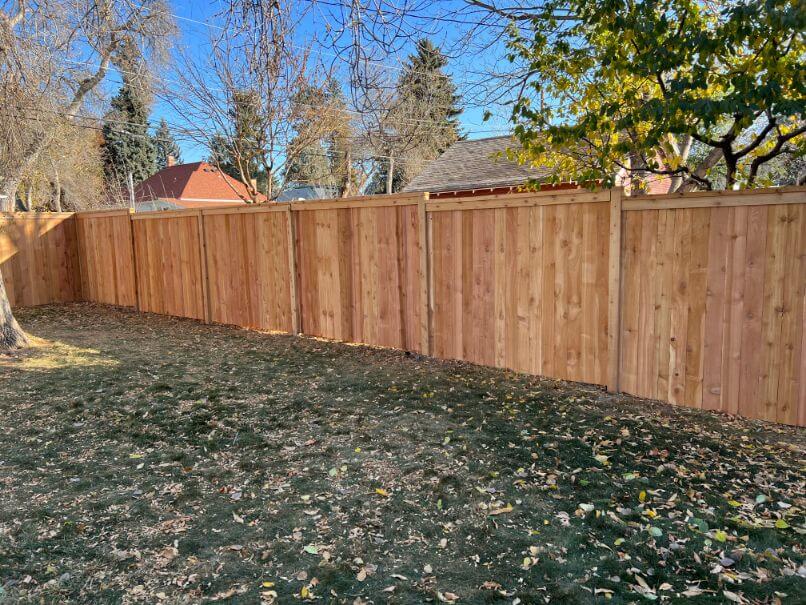All Categories
Featured
Picking the right secure fencing material for your residential property is a considerable decision, and each option comes with its very own set of obstacles and advantages. Timber, vinyl, and light weight aluminum are among the most popular products for both household and commercial fence. Right here's a failure of the advantages and disadvantages of each to aid you decide which is best for your needs.
Timber Fencing. Pros:
Aesthetic Appeal: Wood offers a timeless, natural appearance that matches virtually any type of design of building. It can be painted or discolored in a wide variety of shades, enabling complete customization. Whether you're going for a rustic, country-style appearance or a much more refined and polished appearance, wood is functional.
Economical: Generally, timber fencings are among one of the most budget-friendly choices when it comes to upfront costs. It's a great alternative for those on a budget that desire a quality fencing without a high price.
![]()
Personalization: Timber can be conveniently adapted to fit any form or dimension. You can pick from numerous designs such as personal privacy, picket, or ranch-style fencings. It's also easy to modify, repair, or replace parts if necessary.
Cons:
Maintenance: Wood fencings need regular maintenance. They should be discolored or repainted occasionally to avoid rot, warping, or parasite infestation. Without maintenance, timber can weaken much faster, specifically in moist or damp environments.
Vulnerability to Damage: Wood is prone to harm from pests, such as termites, and climate condition, like high winds, rainfall, or snow. Gradually, exposure to these aspects can trigger the timber to fracture, splinter, or warp.
Much Shorter Lifespan: While timber fences can last for years, they normally have a much shorter lifespan compared to vinyl or aluminum, particularly otherwise kept on a regular basis.
Vinyl Secure Fencing. Pros:
Reduced Upkeep: One of one of the most attractive features of vinyl fences is that they call for little to no upkeep. Unlike wood, plastic doesn't require to be repainted or stained. It's immune to fading, splitting, and warping, making it ideal for those who desire a hassle-free fencing.
Toughness: Vinyl fences are unbelievably durable and can withstand rough climate condition, including severe warmth, heavy rain, or snow. They're likewise resistant to bugs like termites, which can damage timber fences.
Long Life expectancy: Plastic fences can last for 20-30 years or even more with very little maintenance. Lots of suppliers offer guarantees, providing comfort and further boosting the value of your investment.
![]()
Selection of Styles: Readily available in a variety of appearances, colors, and styles, plastic fencings can imitate the look of timber yet without the maintenance. They are offered stylishly like personal privacy, picket, and ornamental, making them highly customizable.
Cons:
Greater Initial Expense: The ahead of time expense of vinyl fence is normally greater than timber, making it less affordable for some. Nonetheless, its durability and low upkeep make it a beneficial investment in the long run.
Fragile in Winter: In cooler environments, vinyl can become brittle gradually, that makes it a lot more prone to breaking if based on influence. This could be a problem in locations with harsh wintertimes.
Limited Personalization: While plastic comes in a range of design and colors, it's not as adjustable as wood. Plastic might not be the best selection. if you have a very specific vision in mind.
Aluminum Fencing. Pros:
Low Upkeep: Light weight aluminum is another product that calls for extremely little upkeep. Unlike wood, it does not rust, rust, or fade. This makes it optimal for settings with extreme weather condition or coastal areas where deep sea might cause corrosion.
Longevity: Aluminum fencings are recognized for their strength and lengthy life expectancy. They can endure harsh climate, and unlike timber or vinyl, they are resistant to insects and will not weaken with time.
![]()
Aesthetic Appeal: Light weight aluminum fences provide a smooth, elegant look and are usually used for decorative objectives. They are available in various styles and finishes and can enhance the overall aesthetic appeal of your residential or commercial property.
Protection: Light weight aluminum is a durable material, making it an outstanding alternative for providing security around your building. It's usually utilized for household protection fence along with for swimming pool units.
Disadvantages:
Expense: Light weight aluminum fences are typically a lot more costly than timber and often also plastic, especially when selecting attractive or custom-made styles. The preliminary cost might be a deterrent for some home owners.
Much Less Privacy: One of the downsides of aluminum is that it commonly uses less personal privacy contrasted to timber or vinyl. The gaps between the slats or bars can be large, which permits individuals to translucent the fence. This may not be the ideal option. if privacy is vital to you.
Nicking: While light weight aluminum is sturdy, it is prone to nicking from hefty effects, such as automobile mishaps or criminal damage. While it will not rust, a damage can endanger its appearance and integrity.
Which Product Should You Choose? The decision between vinyl, aluminum, and wood fence boils down to your budget plan, the quantity of maintenance you're ready to deal with, and the details demands of your residential or commercial property. If you choose an all-natural, personalized appearance and are willing to preserve it, timber may be the means to go. Plastic offers excellent benefits if you prioritize durability, long life, and low-maintenance care. For those that desire a sophisticated, high-end look with minimal maintenance, aluminum is an excellent choice.
Consider your building's climate, the degree of privacy or safety you require, and the lasting financial investment you're eager to make. Whichever product you pick, each deals unique advantages that can boost your home or business while providing capability and design.
Timber Fencing. Pros:
Aesthetic Appeal: Wood offers a timeless, natural appearance that matches virtually any type of design of building. It can be painted or discolored in a wide variety of shades, enabling complete customization. Whether you're going for a rustic, country-style appearance or a much more refined and polished appearance, wood is functional.
Economical: Generally, timber fencings are among one of the most budget-friendly choices when it comes to upfront costs. It's a great alternative for those on a budget that desire a quality fencing without a high price.

Personalization: Timber can be conveniently adapted to fit any form or dimension. You can pick from numerous designs such as personal privacy, picket, or ranch-style fencings. It's also easy to modify, repair, or replace parts if necessary.
Cons:
Maintenance: Wood fencings need regular maintenance. They should be discolored or repainted occasionally to avoid rot, warping, or parasite infestation. Without maintenance, timber can weaken much faster, specifically in moist or damp environments.
Vulnerability to Damage: Wood is prone to harm from pests, such as termites, and climate condition, like high winds, rainfall, or snow. Gradually, exposure to these aspects can trigger the timber to fracture, splinter, or warp.
Much Shorter Lifespan: While timber fences can last for years, they normally have a much shorter lifespan compared to vinyl or aluminum, particularly otherwise kept on a regular basis.
Vinyl Secure Fencing. Pros:
Reduced Upkeep: One of one of the most attractive features of vinyl fences is that they call for little to no upkeep. Unlike wood, plastic doesn't require to be repainted or stained. It's immune to fading, splitting, and warping, making it ideal for those who desire a hassle-free fencing.
Toughness: Vinyl fences are unbelievably durable and can withstand rough climate condition, including severe warmth, heavy rain, or snow. They're likewise resistant to bugs like termites, which can damage timber fences.
Long Life expectancy: Plastic fences can last for 20-30 years or even more with very little maintenance. Lots of suppliers offer guarantees, providing comfort and further boosting the value of your investment.

Selection of Styles: Readily available in a variety of appearances, colors, and styles, plastic fencings can imitate the look of timber yet without the maintenance. They are offered stylishly like personal privacy, picket, and ornamental, making them highly customizable.
Cons:
Greater Initial Expense: The ahead of time expense of vinyl fence is normally greater than timber, making it less affordable for some. Nonetheless, its durability and low upkeep make it a beneficial investment in the long run.
Fragile in Winter: In cooler environments, vinyl can become brittle gradually, that makes it a lot more prone to breaking if based on influence. This could be a problem in locations with harsh wintertimes.
Limited Personalization: While plastic comes in a range of design and colors, it's not as adjustable as wood. Plastic might not be the best selection. if you have a very specific vision in mind.
Aluminum Fencing. Pros:
Low Upkeep: Light weight aluminum is another product that calls for extremely little upkeep. Unlike wood, it does not rust, rust, or fade. This makes it optimal for settings with extreme weather condition or coastal areas where deep sea might cause corrosion.
Longevity: Aluminum fencings are recognized for their strength and lengthy life expectancy. They can endure harsh climate, and unlike timber or vinyl, they are resistant to insects and will not weaken with time.

Aesthetic Appeal: Light weight aluminum fences provide a smooth, elegant look and are usually used for decorative objectives. They are available in various styles and finishes and can enhance the overall aesthetic appeal of your residential or commercial property.
Protection: Light weight aluminum is a durable material, making it an outstanding alternative for providing security around your building. It's usually utilized for household protection fence along with for swimming pool units.
Disadvantages:
Expense: Light weight aluminum fences are typically a lot more costly than timber and often also plastic, especially when selecting attractive or custom-made styles. The preliminary cost might be a deterrent for some home owners.
Much Less Privacy: One of the downsides of aluminum is that it commonly uses less personal privacy contrasted to timber or vinyl. The gaps between the slats or bars can be large, which permits individuals to translucent the fence. This may not be the ideal option. if privacy is vital to you.
Nicking: While light weight aluminum is sturdy, it is prone to nicking from hefty effects, such as automobile mishaps or criminal damage. While it will not rust, a damage can endanger its appearance and integrity.
Which Product Should You Choose? The decision between vinyl, aluminum, and wood fence boils down to your budget plan, the quantity of maintenance you're ready to deal with, and the details demands of your residential or commercial property. If you choose an all-natural, personalized appearance and are willing to preserve it, timber may be the means to go. Plastic offers excellent benefits if you prioritize durability, long life, and low-maintenance care. For those that desire a sophisticated, high-end look with minimal maintenance, aluminum is an excellent choice.
Consider your building's climate, the degree of privacy or safety you require, and the lasting financial investment you're eager to make. Whichever product you pick, each deals unique advantages that can boost your home or business while providing capability and design.
Latest Posts
When to Tell When Your Car Needs Professional Vehicle Service at Montclare Auto Repair
Published May 27, 25
1 min read
Explore WyHy FCU – Top Benefits for Your Money Goals
Published May 26, 25
1 min read
Trustworthy Business Roof Services by Weathercraft
Published May 25, 25
1 min read